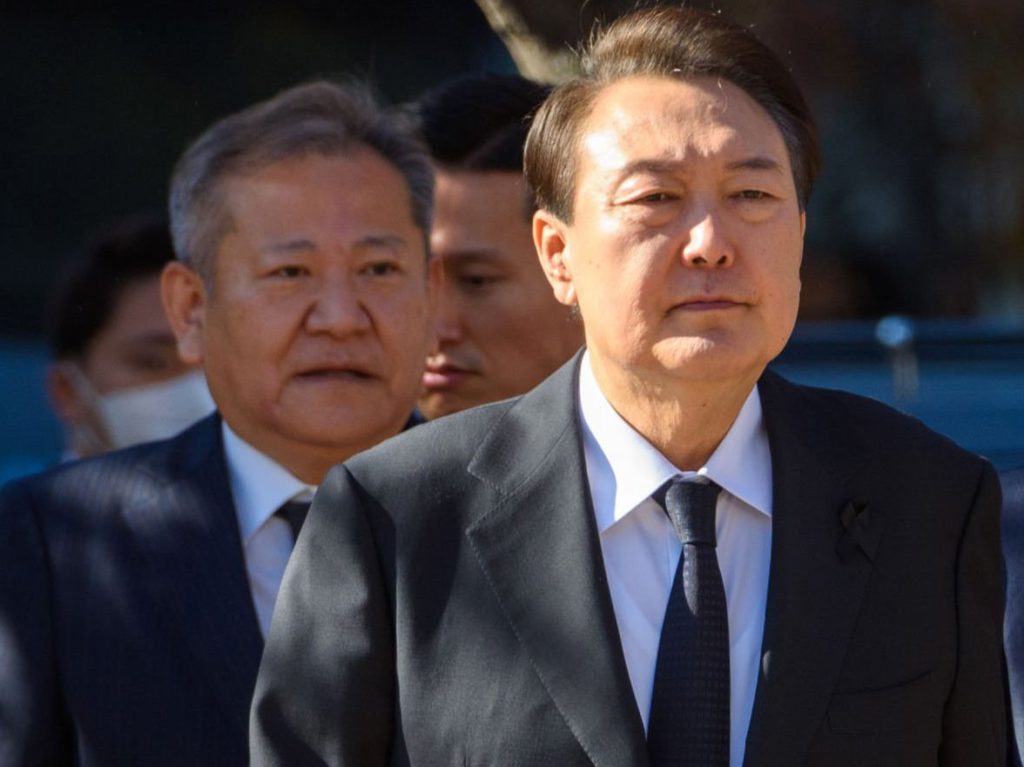South Korea’s progressive opposition bloc used its majority in parliament to approve an unprecedented impeachment measure against the interior minister, heating up partisan tensions as worries mount about the country falling into recession.
(Bloomberg) — South Korea’s progressive opposition bloc used its majority in parliament to approve an unprecedented impeachment measure against the interior minister, heating up partisan tensions as worries mount about the country falling into recession.
The Democratic Party and small groups passed the measure Wednesday to impeach Lee Sang-min, making him the first cabinet minister in the country’s history to be impeached by parliament. They said he should be removed from office over what they saw as a failed response to a deadly crowd crush incident in October. President Yoon Suk Yeol’s conservative People Power Party has called the motion unlawful and defended its response to the incident.
Lee was suspended from office after the vote and his case goes to the Constitutional Court to determine whether the interior minister should be removed. The vote comes with risks for the opposition, which could be seen as abusing its authority if it loses in court.
Last month, a South Korean panel referred 24 officials to prosecutors to face charges of professional negligence resulting in death over the crowd crush at a nightlife district in Seoul last October, which left 158 people dead. No members of the Yoon administration were on the list for criminal referrals.
The Democratic Party has been incensed over an investigation by prosecutors into its leader Lee Jae-myung for alleged graft, calling the probe politically motivated. The party has used its majority in parliament to block many of the president’s business-friendly policies.
The friction comes as South Korea posted a record trade deficit in January on weakening exports, raising concerns about economic contraction amid deteriorating semiconductor demand and persistently elevated energy prices.
The president has also come under pressure from Washington to comply with the Biden administration’s sweeping curbs on the sale of advanced chips to China, where major South Korean semiconductor makers have facilities.
Yoon, a former prosecutor, defeated Lee in a presidential election in March 2022 that was decided by the narrowest margin since the country’s advent to full democracy in the late 1980s.
His office has denied claims of undermining the independence of the justice system and prosecutors by practice don’t comment on the specifics of investigations.
The next parliamentary election won’t come until 2024, so Yoon could face gridlock for his single, five-year term if his PPP can’t capture a majority.
More stories like this are available on bloomberg.com
©2023 Bloomberg L.P.










